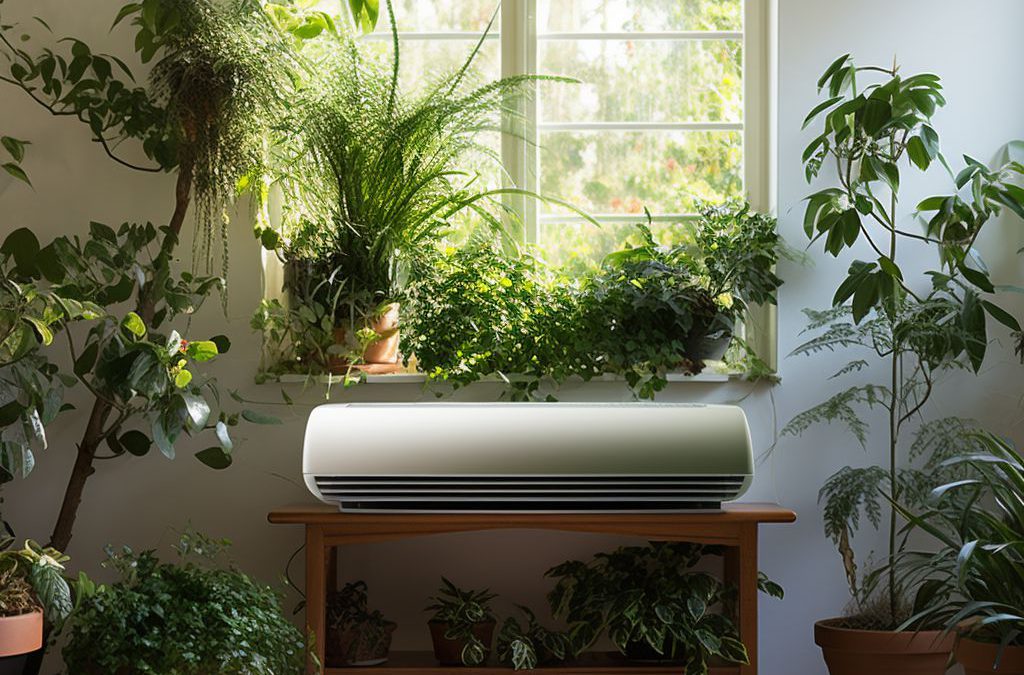When it comes to choosing an air conditioner for your space, the first thing that comes to mind is the cooling capacity or BTU (British Thermal Unit) rating. An 8000 BTU air conditioner is a popular choice for small to medium-sized rooms, offering efficient cooling without breaking the bank. But have you ever wondered how many watts an 8000 BTU air conditioner uses? Understanding the energy usage of your AC unit is not only crucial for keeping your electric bills under control but also for reducing your carbon footprint. In this article, we’ll delve into the nitty-gritty of 8000 BTU air conditioner wattage and explore some tips on maximizing energy efficiency. So, let’s get started!
Tabe of Contents
- 1. Understanding the Real Power Consumption of an 8000 BTU Air Conditioner
- How Many Watts Does a 8000 BTU Air Conditioner Use?
- 2. Factors That Affect the Energy Usage of Your 8000 BTU AC Unit
- 3. Calculating the Required Wattage for Your 8000 BTU Air Conditioner
- 4. Tips to Reduce the Electricity Consumption of Your 8000 BTU AC
- 5. Choosing the Right Size and Type of Air Conditioner for Your Home
- People Also Ask
- Conclusion
1. Understanding the Real Power Consumption of an 8000 BTU Air Conditioner
How Many Watts Does a 8000 BTU Air Conditioner Use?
Before you start shopping for an air conditioner, it’s important to understand how much electricity it will use. An 8000 BTU air conditioner consumes a certain amount of watts per hour, which represents its power consumption. This is important to know because it affects your energy bills and the environment.
The wattage of an 8000 BTU air conditioner varies based on several factors such as the model, age, and energy efficiency. Most 8000 BTU air conditioners consume between 600 and 800 watts per hour, with an average of 700 watts. This means that if you use it for 8 hours a day, the electricity used would be between 4.8 kilowatts and 6.4 kilowatts per day.
It’s important to note that the wattage also depends on the mode of operation. For instance, using the fan mode consumes less electricity than using the cooling mode. The energy efficiency rating is another factor that affects the power consumption of your air conditioner. An air conditioner with a higher energy efficiency rating will consume less electricity than one with a low rating. That being said, it’s important to consider all these factors when choosing an air conditioner to save money on your energy bills and reduce your environmental footprint.
2. Factors That Affect the Energy Usage of Your 8000 BTU AC Unit
Understanding the factors that affect the energy usage of your 8000 BTU air conditioner is important in order to make the most efficient use of your appliance. Here are some of these important factors:
Room Size
The size of the room where you will put your air conditioner plays a big role in the energy usage of the unit. The smaller the space, the less power your air conditioner needs to cool it down. Make sure you measure the size of the room before purchasing an 8000 BTU air conditioner for optimum performance.
Frequency of Use
How often you use your 8000 BTU air conditioner also affects its energy usage. If you only use your air conditioner occasionally, it will not consume as much energy as a unit that is used continuously throughout the day. Be mindful of your usage and adjust the thermostat to an efficient temperature.
Thermostat Settings
The thermostat of an 8000 BTU air conditioner also plays a significant role in its energy usage. Keeping the thermostat at a lower temperature requires more energy to maintain, while a higher temperature requires less. Consider setting the thermostat at a comfortable temperature to save energy.
Air Filter Condition
A dirty air filter can impair the airflow, causing your air conditioner to consume more energy. A clean air filter will ensure that cool air circulates freely and efficiently, lowering the energy consumption of your air conditioner.
Coolant Charge
The coolant charge of an air conditioner affects its energy usage. Make sure you have the recommended amount of coolant for your 8000 BTU air conditioner unit. Insufficient coolant may cause your air conditioner to consume more energy as it struggles to maintain a cool temperature.
By understanding the factors that affect the energy usage of your 8000 BTU air conditioner, you can maximize its efficiency and save on electricity costs.
3. Calculating the Required Wattage for Your 8000 BTU Air Conditioner
To calculate the required wattage for your 8000 BTU air conditioner, you need to understand the concept of power consumption and unit conversions. Typically, air conditioners are rated in BTUs (British Thermal Units) and their power consumption is measured in watts. To determine the power consumption of your 8000 BTU air conditioner, you would need to convert the BTUs to watts.
To convert BTUs to watts, you need to multiply the BTU value by 0.2931. Therefore, the power consumption of an 8000 BTU air conditioner can be calculated as follows:
8000 BTU x 0.2931 = 2345.2 watts
This means that an 8000 BTU air conditioner uses approximately 2345 watts or 2.345 kilowatts of power per hour. It is important to note that this is the maximum power consumption of the air conditioner, which means that it is the amount of power that the unit would use if it were running constantly and at full capacity.
However, it is quite common for air conditioners to consume less power than their maximum rating. The actual power consumption of your 8000 BTU air conditioner will depend on several factors, which we will discuss in the next section.
When selecting an air conditioner, it’s important to purchase one that has the appropriate wattage rating to match your needs. A unit that is too small for your room will not effectively cool the space, and a unit that is too large for your needs will consume unnecessary power.
4. Tips to Reduce the Electricity Consumption of Your 8000 BTU AC
If you’re concerned about your energy bills and want to reduce the electricity consumption of your 8000 BTU air conditioner, there are a few simple tips you can follow. Here are some suggestions that can help you save energy while still benefiting from the cooling power of your AC unit.
1. Keep Your AC Clean
One of the simplest ways to improve the efficiency of your air conditioner is to keep it clean and free of dust and debris. This means regularly cleaning your filters, both the air filter and the evaporator coil, to make sure they’re not clogged with dirt. When your filters are dirty, your AC unit has to work harder to push air through them, which can increase energy usage. You can also clean the exterior of your AC unit to remove any debris that may be blocking airflow.
2. Adjust Your Thermostat Settings
Another way to reduce energy consumption is to adjust your thermostat settings. If you set your thermostat too low, your AC unit will have to work harder to maintain the temperature you want, which can increase energy usage. Consider setting your thermostat to a temperature that’s comfortable but not too chilly, and use a ceiling fan to circulate cool air throughout the room. You can also use a programmable thermostat to adjust the temperature automatically based on your schedule, so your AC only runs when you need it.
3. Reduce Heat From Appliances
Appliances like ovens, dryers, and computers generate heat, which can make your AC unit work harder to cool your home. Try to reduce heat from these sources by using them at cooler times of day, like at night, or by using them in well-ventilated areas. You can also consider switching to energy-efficient appliances that generate less heat and use less energy. Finally, consider using a dehumidifier to reduce moisture in the air, which can also make your AC unit work more efficiently.
By following these tips, you can reduce the energy consumption of your 8000 BTU air conditioner without sacrificing your comfort. Remember to keep your AC unit clean, adjust your thermostat settings, and reduce heat from appliances to maximize efficiency.
5. Choosing the Right Size and Type of Air Conditioner for Your Home
is crucial for efficient cooling and energy consumption. Here are some factors to consider when selecting an air conditioner.
Size Matters
Make sure you choose an air conditioner that is appropriate for the size of your room. A unit that is too small will have to work much harder to keep the temperature down, while a unit that is too large will use unnecessary electricity to create excess cooling. Use the following rule of thumb: 20 BTUs for every square foot of living space. For example, if you have a 200 square foot room, then you will want an air conditioner around 4,000 BTUs per hour.
Efficiency: SEER Rating
Your air conditioner’s efficiency rating is measured by its Seasonal Energy Efficiency Ratio (SEER) rating. A higher number means that the unit is more energy-efficient. Units with a rating of 18 SEER or higher are considered very efficient, while those with a rating of 13 SEER or lower are less efficient. Additionally, ensure that the air conditioner is ENERGY STAR certified. These units use about 15% less energy than non-certified units.
Type of Air Conditioner
There are various types of air conditioners, including window units, portable air conditioners, split systems, and central air conditioning systems. Window and portable units are ideal for cooling small rooms, while split systems are great for larger areas. Central air conditioning systems, as the name suggests, cool the entire house and are the most expensive to install. Consider factors such as your budget, living space, and preference when choosing the right type of air conditioner for your home.
By taking the time to choose the right size and type of air conditioner for your home, you can improve your cooling efficiency and save money on your electricity bill.
People Also Ask
How many amps does an 8000 BTU air conditioner use?
An 8000 BTU air conditioner typically uses around 6.5 amps of electricity. However, this may vary depending on the specific model and other factors.
How much electricity does an 8000 BTU air conditioner use per hour?
On average, an 8000 BTU air conditioner uses around 700-800 watts per hour. This translates to approximately 0.7 to 0.8 kilowatt-hours per hour.
How many watts does a 12000 BTU air conditioner use?
A 12000 BTU air conditioner typically uses around 1200-1400 watts of electricity per hour. However, this may vary depending on the specific model and other factors.
How many watts does a 5000 BTU air conditioner use?
A 5000 BTU air conditioner typically uses around 450-500 watts of electricity per hour. However, this may vary depending on the specific model and other factors.
Can an 8000 BTU air conditioner cool a room?
Yes, an 8000 BTU air conditioner can cool a room of approximately 300 square feet. However, the cooling capacity may vary depending on factors such as insulation and the layout of the room.
Conclusion
In conclusion, an 8000 BTU air conditioner typically uses around 700-800 watts per hour, but this may vary depending on the specific model and other factors. When considering air conditioning options for a room, it is important to take into account the cooling capacity of the unit, as well as its energy efficiency and electricity usage. Proper sizing and maintenance of an air conditioning system can help save energy and reduce costs in the long run.

Ductwork Specialist
Nathan’s meticulous duct cleaning services eliminate dust and debris, improving air quality and system efficiency. His attention to detail guarantees a thorough and effective cleaning process.

